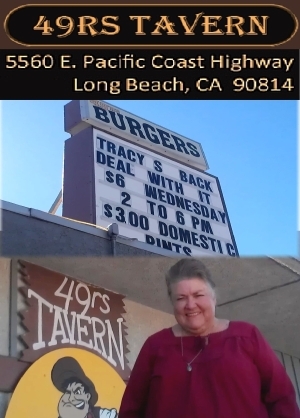Long Beach is now on the path to being one of those sadly demagogic places, where brute force housing policy sacrifices long-term quality of life for politicians’ short-term political gain, a rent control city.
Forty-five out of fifty states in America do not even have a single municipality, town, burg, or jurisdiction of any kind with rent control. Only a handful of California cities, primarily the biggest ones, have anything that can be termed it. New York City, famous for being the home to multimillionaires in modest-sized Manhattan apartments (the average rent for a two-bedroom, across all five boroughs, is about $4,000) and everyone else paying thousands just for a pied-à-terre (real estate speak for a possibly rat-infested studio barely bigger than a closet), pioneered rent control as an emergency measure during World War II (but afterward just never went away).
Fair housing laws, and basic landlord-tenant law, to protect both tenants and landlords, abound, of course. But that’s not what we’re talking about. Rent control is a rarity, because it strips landlords of basic rights ordinarily considered sacrosanct to property ownership—the ability to freely regulate, so long as there’s no discrimination, who does and does not get freely to enter into a contract with you to live under your roof (a roof so hard-won by you or your forebears), and for how much, and for how long.
Taking that right away from a property owner means taking away her (or his) ability to manage effectively the property, and that is essentially what just occurred in Long Beach, albeit dishonestly and under a deceptive name.
What was passed Tuesday night (actually early Wednesday morning), on a 6-3 vote of the City Council, was titled the “Tenant Relocation Assistance Ordinance”. Sounds pretty benign doesn’t it? Bad policy always does, especially in Long Beach.
It means that we have grown up to become a ‘big city’ and have fundamentally changed, and that’s not necessarily a good thing. At least not if you actually live here. Gentrifying outside developers will really love that change to ‘big city’ status, though, because it spells a bifurcation in the housing market between skyrocketing-rent new development (which is not subject to local rent control under California law) and declining rent controlled housing stock, which they will then cannibalize on the cheap and redevelop (not for the current residents, who ironically get displaced, but rather for their gentrified replacements).
While City staff, no doubt at the mayor’s prompting, were at pains Tuesday to declare that this new policy was in no way rent control or just cause eviction, on the ground level here is how it has just the same effect and characteristics.
When the new ordinance (agreed to in principle by the Council but still being drafted by the City Attorney) goes into effect, it will place a giant hurdle in the path of landlords ending month-to-month leases with tenants who are, for example, extremely abusive to their neighbors. By requiring that landlords make a $3,235 extortion payment for one-bedroom units, $4,185 payment for two-bedrooms, or up to $4,500 for 3+ bedrooms (or $2,706 for studios) to nuisance tenants, for the privilege of discontinuing an already-expired lease (most apartments begin with a one-year lease, which converts to month-to-month upon expiration), this will flip the management dynamic in every single rental building in the city.
Control will shift from the hands of the landlord—who (under normal housing policy) has earned the respect of the tenants by creating something very meaningful in society (the very roof over their heads), achieved by working hard, saving, investing, risking capital, and then tending to that investment (including paying the mortgage, taxes, and other expenses) over the course of decades, and whose authority over the management of her own property used to be guaranteed by traditional property rights—to the hands of that one jerk in the building who ruins it for everyone else (and who hasn’t had a neighbor like that at one time or another?).
Indeed, the right to be the biggest jerk in the building, with total immunity, has now been enshrined in law. Mr. (or Ms.) Jerk will now know that the worse he conducts himself, the closer he approaches either: a) to getting away with abusive conduct wholly and unrestrainedly, or b) to getting a $4,000+ reward for his behavior, before moving on to the next building (in what could easily become a repeating scam) to do it all over again.
The conditions for this scenario arise from the details of the Tenant Relocation Ordinance, which mimics standard rent control provisions in order to create a trigger for the assistance payments: Just as in most rent control (as it’s called colloquially, or ‘rent stabilization’/’just cause’) ordinances, there is a cap on increasing rents and a list of ‘just causes’ for eviction, including standard breaches of a lease, like failure to pay rent, committing a serious crime (like being convicted of drug dealing, a weapons offence, or domestic violence), or being a nuisance to neighbors.
Unfortunately, if you speak to any landlord-tenant law attorney in a city with ‘just cause’ eviction, the list of just causes is virtually unenforceable (and going to court in any event is far more costly and time consuming than the mere $4k extortion, excuse me, ‘relocation’ payment) except in extreme situations.
If you have a tenant who is mentally ill and literally scares the bejeezus out of all his or her neighbors—perhaps even hurling racist or sexist or otherwise unhinged insults on a daily basis, or who stares through windows or screen doors, or whatever the issue may be—it would not matter if every single other tenant in the building signed a petition begging the property manager, for the love of god, to do something about this person. The reality is that proving a nuisance eviction in court can easily cost $50,000 in legal fees and still be unsuccessful, only making the problem worse.
It's a nightmare scenario.
The question is, how did we find ourselves spiraling toward it, potentially rendering every single rental complex in Long Beach (larger than a threeplex, or fourplex if owner-occupied) becoming a captain-less ship (unless the captain is able and willing to pay a four thousand dollar penalty, per unit, to restore her property rights, which after the mortgage and other costs she may not even have). Most other cities our size have avoided this housing policy vortex, and traditionally such ideologically extreme, short-sighted, counterproductive faux-solutions have been anathema to moderate, policy-cautious Long Beach.
How did this happen, when rental property advocates seemingly had already won the public debate on rent control? California’s Proposition 10 (which would have paved the way for expansion of rent control across the state) failed in a 60%-40% landslide at the ballot box last November. A local rent control initiative didn’t even make it to the ballot, withdrawn after its backers failed to collect enough signatures for review by the City Clerk. And the mayor ran for both election and reelection with a stance in opposition to rent control (although he only reaffirmed it last year under pressure from a potential challenge to his reelection, on the last day of filing, from anti-rent control, neighborhoods advocate Robert Fox).
And how did this happen when Long Beach is already relatively more affordable, and has experienced a lower rate of rent appreciation than neighboring rent-controlled Los Angeles?[1] And when rent control policies are notorious among economists for reducing the quality and quantity of affordable housing stock and actually driving rents higher?
The answer is that where there’s a political wave there’s a politician ready to ride it. Mayor Garcia apparently no longer considers the residents of Long Beach to be his most important constituency as he casts his eyes toward higher office. He would rather send a message beyond our city borders, where the image of being a mayor “addressing the housing crisis” has cachet and the ground realities of what you’ve actually done mean far less than the headlines.
But generating the headlines means getting the policy through, which means passing it without awaking the sleeping political giant of Long Beach homeowners, who tend to oppose anything called “rent control” (not to mention many renters who see through the demagogy to oppose it) and who rose successfully last year in opposition to the proposed LUE (Land Use Element revision of the General Plan, an intended citywide high density development scheme).
So to get it through the council chamber they had to take evasive action. They had to complicate, cloud, and obfuscate. It’s a stratagem this mayor has perfected. He’s not interested in fighting an issue out in the open, under the disinfectant daylight of honest debate.
Instead the mayor and his council allies snuck this poor man’s rent control through the back door, under the guise of a different name and a complex structure, and without disclosing their own positions until, not days or weeks, but just minutes or hours before the vote. A public stance earlier than that would have opened them up to media scrutiny and public challenge. Instead they waited until the absolute last moments before the vote, in the mayor’s case past midnight, after hours of public comment and kabuki-theater council to and fro.
You've got to hand it to Mayor Garcia and his quarterback on this item, Councilman Richardson, whose specific version ultimately passed. They were clever and devious, and they’ve still got most of the city snookered as to what they actually did.
Councilwomen Price and Mungo attempted to offer “friendly” amendments, obviously aware Richardson had the votes he needed, to soften the terms of this ordinance, but Richardson had his allies (Gonzalez, Pearce, and Uranga), along with Andrews and Austin, and rejected all entreaties. On the final vote, the nays were Price, Mungo, and Supernaw, who deserve real credit for resisting this demagogic, pandering attempt to make a show of fixing a problem it only makes worse.
What was absent from the debate was any substantive discussion from City staff or the council dais of the real reasons behind the appreciation in Southern California rents, the real causes of gentrification and displacement (which are accelerated by the policies and priorities of the current mayor), or real solutions.
During my 90 seconds of allotted public comment I made the point that an honest debate about providing tenants social insurance and security against displacement would require discussion of government funding, rather than an unfunded mandate carelessly tossed on the backs of the very people stepping forward as housing providers. On the statewide level, renter tax credits are another option.
But debate of these kinds of concepts would have done something startling. It would have painted an honest picture, both of real costs and benefits. That’s a painting which this mayor and a majority of councilmembers were not interested in looking at nor exposing to public glare.
[1] According to p. 57 of the 262-page “Report on Tenant Assistance Policies” issued by the City in advance of Tuesday’s Council item on the proposed “Tenant Relocation Assistance” ordinance, current average Long Beach apartment rent is $1,418 vs. $1,127 at the beginning of 2014, or an increase of 25.8%. Compare that to Los Angeles, which (according to RentJungle.com) has a current average rent of $2,855 vs. $2,186 at the beginning of 2014, or an increase of 30.6%.
Simultaneous with our publication of this opinion piece, LBREPORT.com has offered Housing Long Beach an opportunity to submit an opinion piece on the issue.
Opinions expressed by LBREPORT.com, or op-ed/opinion piece authors and/or our readers are not necessarily those of our advertisers. We welcome our readers' comments/opinions 24/7 via Disqus, Facebook and moderate length letters and longer-form op-ed pieces submitted to us at mail@LBReport.com.
Sponsor | Sponsor |
Sponsor |  |
Sponsor | Sponsor |
Sponsor | Sponsor |
 |
| Support really independent news in Long Beach. No one in LBREPORT.com's ownership, reporting or editorial decision-making has ties to development interests, advocacy groups or other special interests; or is seeking or receiving benefits of City development-related decisions; or holds a City Hall appointive position; or has contributed sums to political campaigns for Long Beach incumbents or challengers. LBREPORT.com isn't part of an out of town corporate cluster and no one its ownership, editorial or publishing decisionmaking has been part of the governing board of any City government body or other entity on whose policies we report. LBREPORT.com is reader and advertiser supported. You can help keep really independent news in LB similar to the way people support NPR and PBS stations. We're not |
blog comments powered by Disqus
Recommend LBREPORT.com to your Facebook friends:
Follow LBReport.com with:
RSS |
Contact us: mail@LBReport.com





Hardwood Floor Specialists
Call (562) 422-2800 or (714) 836-7050
